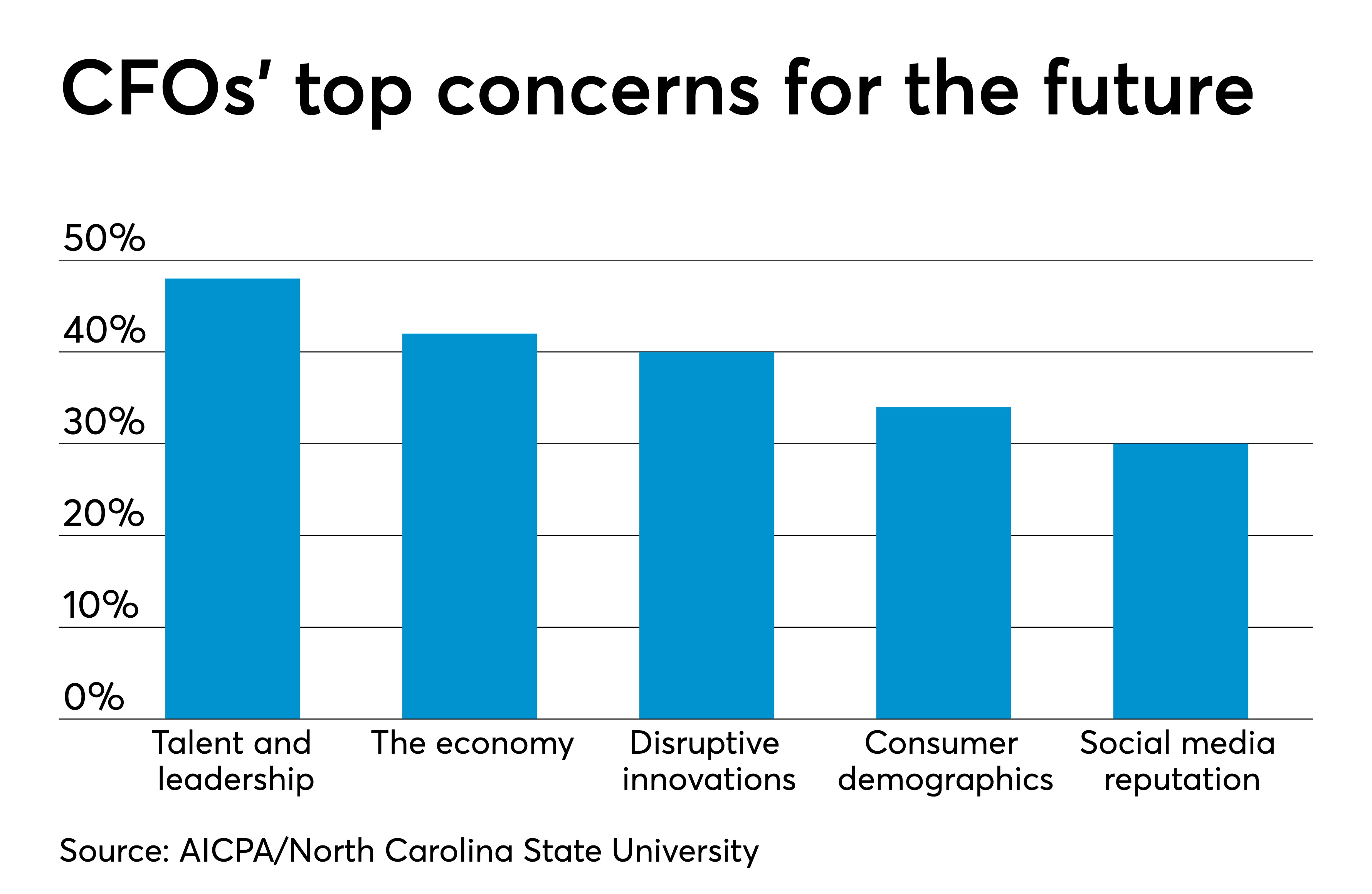The following is a report on snags to be
faced by CFOs in 2020:
Transforming Geopolitical Quandary
into Sagacity
CFOs will oversee trade conflicts, Brexit
and supervise a latent economy slump. The
U.S.-China trade war has admonished U.S. companies to nurture vigilance.
Because of this, 56% of the CFOs at U.S. companies have instigated contriving
for a recession.
Trimming and Tightening
CFOs gauged that in the third quarter
capital spending would grow by 3.6% over the next 12 months, lower than
their outlook for 9.4% growth a year. In the fourth quarter of 2019, it reached
their rock-bottom since early 2017. U.S. business investment was sluggish
throughout 2019 schlepping down U.S. economic growth. CFOs’ worries about the
necessity to acclimatize and invent will burgeon in 2020 as more companies will
acquire automation to build proficiency and growth.
Quest for Talent
CFOs have to deal with the paucity of availability
of personnel and qualified finance professionals to perform roles that
extensively quench for technological maestros. Organizations have invested in
short-term job training programs and boot camps to train workers.
Existence of Bond Market
Competition
The bond market champions companies with low
interest rates, permitting them to borrow at more affordable rates. Chief
companies were in a gallop to issue new bonds to refinance short-term debt and
help cut interest expenses by supplanting existing debt with lower yielding
bonds.
Owning Valuable Companies
Mounting stock prices and truncated interest
rates benefit companies that want to grow through acquisitions. Companies that
can use the available capital and make adjustments should be able to maintain
M&A thrust.
Staying on top of the books
The Financial
Accounting Standards Board (FASB) is concentrating on
the matters of segregating liabilities from equity and improving the
measurement of goodwill for 1st half of the next year.


Comments
Post a Comment